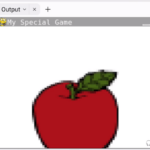Welcome to our comprehensive overview of Python lists – an essential aspect of coding in Python for both beginners and experienced coders alike. Whether you’re just starting your coding journey or looking to brush up your skills, Python lists are an indispensable tool to master. They can simplify your code, making it cleaner, more efficient and easier to read. Before diving into the code, let’s explore what Python lists are and why they should be a key component of your Python coding toolkit.
Table of contents
What is a Python List?
A Python list is a built-in data type that can hold an ordered collection of items. These items can be of any type – integers, strings, other lists, or even a mix of types. Picture a Python list like a backpack in a video game. Your character can carry around various items in their backpack in a specific order and pull out what they need when they need it.
Python lists are used to organize data in an efficient and accessible way. Just like our game character needs to easily access their health potions or weapon upgrades, a Python programmer uses lists to handle and manipulate data. From implementing game physics to creating dynamic menus, lists are a critical component.
Learning about Python lists can significantly boost your efficiency and productivity as a coder. It opens up a whole new realm of possibilities for organizing and manipulating data in your programs. If you think about it, our game character is much more powerful with their organized backpack, and so are you with Python lists!
How to Create a Python List?
Let’s dive into creating our first Python list. The process is surprisingly simple! Here’s an example:
inventory = ['health potion', 'weapon upgrade', 'shield'] print(inventory)
Running the above code will output:
['health potion', 'weapon upgrade', 'shield']
Our game character now has an inventory, an ordered list of items.
Accessing Items in a List
To access specific items in our inventory list, we use the index number:
print(inventory[0]) # Output: 'health potion' print(inventory[2]) # Output: 'shield'
Note that Python list indices start at 0, not 1, so the first item is accessed with ‘0’.
Modifying a List Item
Our game character can also switch out items in the inventory. Here’s how:
inventory[1] = 'power boost' print(inventory) # Output: ['health potion', 'power boost', 'shield']
As you see, the ‘weapon upgrade’ has been replaced with ‘power boost’ in our inventory.
Adding and Removing Items
Items can be added or removed from the list using built-in Python functions:
inventory.append('armor') # Adds 'armor' to the end of the list
print(inventory) # Output: ['health potion', 'power boost', 'shield', 'armor']
inventory.remove('shield') # Removes 'shield' from the list
print(inventory) # Output: ['health potion', 'power boost', 'armor']With the ‘append’ function, we added ‘armor’ to our inventory. We then removed the ‘shield’ with the ‘remove’ function.
Length of a List
You can find out the number of items in a list using the len function, like this:
print(len(inventory)) # Output: 3
Our inventory currently has 3 items – health potion, power boost, and armor.
Checking if an Item Exists
To check if a particular item is in your list, use the ‘in’ keyword:
print('armor' in inventory) # Output: True
print('shield' in inventory) # Output: FalseAs demonstrated, ‘armor’ is in our inventory, but ‘shield’ has been removed earlier.
Sorting a List
To keep our game character’s inventory well-organized, here’s how you can sort a list:
inventory.sort() # Sorts the list in place print(inventory) # Output: ['armor', 'health potion', 'power boost']
The ‘sort’ function sorts the items in our inventory in alphabetical order.
Looping Over a List
Last but not least, we can check each item in our inventory with a loop:
for item in inventory:
print(item)
# Output:
# armor
# health potion
# power boostUsing a simple for loop, we printed each item from the inventory sequentially.
Python lists are indeed versatile and powerful. With easy creation, modification, and manipulation of data, they are crucial to mastering Python. And just like our game character’s backpack, Python lists provide an organized and efficient way of storing items – albeit in our case, data!
Where To Go Next?
If you found Python lists exciting and want to take your learning journey further, or if you’re ready to tackle more complex topics, we have a perfect solution for you! Kickstart your journey into Python programming with our Python Mini-Degree.
The Python Mini-Degree offered by us at Zenva Academy is a comprehensive set of courses that dives deep into Python programming. From coding basics to complex algorithms, and from object-oriented programming to interactive game development, we’ve got it all covered. The best part? Along with learning, you get to build your own games, algorithms, and even real-world applications.
With the Python Mini-Degree, not only will you gain a strong foundation in Python coding but also find yourself at ease with its wide application in the job market. Whether you’re a beginner or an experienced coder, this program is tailored to suit your level and pace of learning. The flexibility of our courses allows you to access them 24/7, ensuring that your learning never takes a back seat.
But the learning doesn’t stop there. We often update our curriculum to keep abreast of the latest industry trends, preparing you for the dynamic job market.
Join the ranks of our successful students, who’ve published their own games, launched businesses, or simply boosted their existing skills to climb the career ladder. Your Python learning journey has just begun!
If you’re already past the basics and looking to delve into more intermediate Python concepts, explore our array of Python courses.
Conclusion
Python Lists are a gateway to efficient, clean, and organized code. Do you remember our game character’s backpack? Can you imagine how chaotic his journey would be if every item was scattered randomly? That’s how significant Python lists are in managing your data.
Whether you’re planning to develop a game, automate a task, or analyze a large dataset, mastering Python lists will undoubtedly make your life easier. Take the next step in your Python programming journey today with Zenva’s Python Mini Degree. Let’s code, learn, and grow together.
Did you come across any errors in this tutorial? Please let us know by completing this form and we’ll look into it!

FINAL DAYS: Unlock coding courses in Unity, Godot, Unreal, Python and more.







